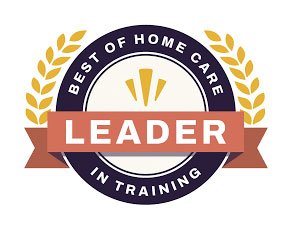
Cancer journeys do not follow a straight line. Some families decide to stop disease-directed treatment. Others continue with selected treatments while focusing on comfort. In both cases, you can plan ahead so comfort, dignity, and meaningful time come first. This guide explains how hospice supports people with cancer when treatment stops, how palliative care and hospice can work alongside certain treatments, and how to prepare practical next steps in Alpharetta, Fulton County, and across Metro Atlanta.
Key takeaways
- You can choose comfort-focused care at any point, and you can still change your mind later.
- Hospice supports symptom control, emotional and spiritual care, and caregiver relief, usually in the place you call home.
- Palliative care can be used alongside active cancer treatments. Hospice begins when the goal shifts mainly to comfort.
- Planning early reduces stress, prevents crises, and helps you use your energy for what matters most.
- Your care team will help you understand coverage, equipment, and how visits work in Alpharetta and Metro Atlanta.
Why Families Consider Hospice in Cancer
Cancer affects more than one body system and more than one person. It changes sleep, appetite, mood, family roles, and daily routines. Many families reach a point where the burdens of treatment begin to outweigh the benefits. Others continue with selected treatments for symptom relief while prioritizing comfort and time at home. Hospice provides a clear plan for comfort, communication, and support so that you and your family can focus on time together.
Comfort without giving up hope
Hope changes shape over time. In the beginning, you may hope for cure. Later, you may hope for days with less pain, a peaceful night, or a family visit that feels unhurried. Hospice helps you pursue the kind of hope that fits this season of life.
Palliative Care vs. Hospice in Cancer
Palliative care supports people at any stage of serious illness. You can receive palliative care while continuing treatments like chemotherapy, radiation, immunotherapy, or targeted therapy. The goal is relief from symptoms such as pain, nausea, shortness of breath, anxiety, or fatigue. Clinicians coordinate with your oncology team to adjust medications, equipment, and coping strategies.
Hospice care begins when the focus shifts mainly to comfort rather than cure. The goal is quality of life. Hospice services often include regular visits from the care team, medications for symptom control, medical equipment delivered to the home, caregiver education, emotional and spiritual support, and 24 by 7 phone support.
What if treatment has not completely stopped
Some people receive limited, symptom-directed treatments while on a comfort-first plan. Your care team will explain what is compatible with hospice and what may be better supported under palliative care. The most important step is an honest goals-of-care conversation with your family and your clinicians.
Signs it may be Time to Consider Hospice
Use this list to guide a conversation with your care team. If several apply, ask about a hospice evaluation.
- Frequent hospital or emergency department visits in the last months
- Rapid weight loss or very low appetite despite support
- Significant fatigue that limits time out of bed most days
- Shortness of breath at rest or with minimal activity
- Pain that requires frequent adjustments or causes missed activities
- Complex symptoms that feel hard to manage at home
- You or your loved one want to spend more time at home with fewer appointments
- Caregivers feel stretched to a breaking point and need scheduled relief
What Hospice Provides for People with Cancer
Symptom control that fits your goals
Your plan addresses pain, nausea, constipation, shortness of breath, anxiety, restlessness, and cancer-related fatigue. The care team prescribes and adjusts medications, coordinates supplies like oxygen or a hospital bed, and teaches practical comfort strategies that work in real homes.
Care you can count on at home
- Regular visits from the care team to check symptoms and update the plan
- Certified nursing assistants to help with personal care and comfort
- Social work and chaplain support for family conversations and coping
- On-call support by phone at any hour, with visits when needed
- Medications, supplies, and equipment delivered and maintained
Support for caregivers
Caregiving for cancer can be physically and emotionally heavy. Hospice teaches safe transfers, symptom monitoring, and medication setup. Short-term inpatient respite is available for planned breaks so caregivers can rest and recover.
Planning Ahead When Treatment Stops
When you decide to stop active cancer treatment, planning creates space for the moments you want to protect.
- Clarify what matters most. Name three priorities. For example, time at home, control of pain, and a peaceful environment. Give these to your care team in writing.
- Update the comfort plan. Review current medications. Remove those that no longer help your comfort. Add medications that reduce pain, anxiety, breathlessness, or nausea. Ask about long-acting options to simplify routines.
- Choose equipment that reduces strain. Common items include a hospital bed, oxygen, bedside commode, wheelchair, shower chair, and fall prevention supplies. Your care team will arrange delivery, setup, and teaching.
- Create a night plan. Decide who answers the phone at night, where supplies are stored, and which symptoms mean you will call for a visit. Good night plans reduce stress and prevent last-minute trips.
- Schedule respite. If a caregiver needs a break, ask about a short inpatient respite stay. Your loved one continues to receive care while the caregiver rests.
- Prepare documents. Keep a copy of advance directives, a list of medications, and important contacts in one place. Make sure everyone knows where it is.
Planning Ahead When Treatment Continues
If you are still receiving selected cancer treatments, you can strengthen your support system without giving up your options.
- Coordinate with your oncologist and palliative care
Ask for a joint plan that balances symptom relief with clinic visits. Clarify which symptoms should trigger a call and which can be managed at home. - Streamline your schedule
Group appointments on the same days. Ask about home-based labs, telehealth follow ups, and delivery of supplies. Save your energy for the activities you value most. - Build a comfort kit
Include anti-nausea medicine, a bowel regimen, a pain management plan, and tips for mouth care. Keep a list of what helps on hard days. - Talk about what-if scenarios
Decide what you would want if the next scan shows progression or if side effects become too hard. Early conversations reduce pressure later.
How Hospice Care Visits Work
Frequency and who comes
You will receive scheduled visits from your care team based on your needs. Visits can increase during symptom changes. You will also have access to on-call support at any hour by phone, with visits when necessary.
What happens during a visit
- Symptom review and medication updates
- Teaching for family caregivers on safe care techniques
- Emotional and spiritual support as requested
- Planning for equipment or home safety
- Help coordinating with your other clinicians
Where care happens
Most hospice care happens wherever you live. This can be a private residence, assisted living, or a nursing home. If complex symptoms require close monitoring, your team may recommend a short general inpatient stay to stabilize comfort.
What Families Often Worry About
- Will I be giving up too soon
Choosing hospice is not giving up. It is choosing the type of care that best fits your goals today. You can always revisit decisions if your goals change. - Will pain medicine make me sleep all day
Pain control can be tailored to balance comfort and alertness. Your team will start with the lowest effective doses and adjust carefully. - What if a new treatment becomes available
Talk with your oncologist and your care team. Decisions can be revisited. The goal is always to align care with your values and preferences.
Practical Checklist for the Next Week
- Write down your top three goals and share them with your care team
- Review your medication list and remove what no longer helps comfort
- Ask for equipment that reduces strain at home
- Identify one trusted person who can help with errands or respite
- Post important phone numbers in a visible spot
- Create a simple night plan and discuss when to call for help
- Set one small, meaningful activity and plan your energy around i
How this works for families in Alpharetta and Metro Atlanta
If you live in Alpharetta, Fulton County, or nearby counties we serve, your care team will coordinate evaluations, equipment delivery, medication setup, and visit schedules that fit your home routine. You will know how to reach us day and night, how coverage works, and what to expect if symptoms change. Our approach is local and neighbor-like, with support for the physical, emotional, and spiritual parts of your experience.
Frequently Asked Questions
- Can I start hospice while finishing a round of radiation for symptom relief?
Talk with your oncologist and your care team. Some symptom-directed treatments may still be part of a comfort plan, while others fit better under palliative care. The team will explain your options. - What services are included at home?
Typical support includes care team visits, personal care assistance, medications related to your hospice diagnosis, medical supplies, and equipment. Social work and chaplaincy are available for emotional and spiritual needs. - How do I know if my loved one is eligible?
Eligibility is based on clinical indicators and goals of care. If you are unsure, request a hospice evaluation. It is an information visit that helps you decide next steps. - What if symptoms suddenly get worse?
Call anytime. Your plan can be adjusted quickly. In some cases, a short general inpatient stay helps stabilize complex symptoms before returning home.
Plan Comfort-Focused Cancer Care in Alpharetta and Fulton County
If you are facing decisions about cancer treatment or you are ready to focus on comfort, you do not have to navigate this alone. Our hospice care team supports symptom relief, meaningful time at home, and caregiver respite across Alpharetta and Metro Atlanta. Take the next step and call our care team at (470) 395-6567 for guidance today.




